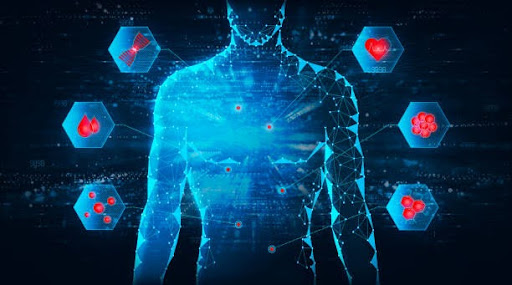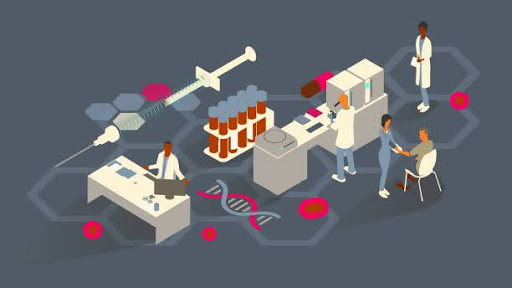Biomarker Discovery: Unlocking the Future of Personalized Medicine
In recent years, the concept of personalized medicine has transformed from an ambitious vision to a fast-developing reality, driven by advancements in biomarker discovery. A biomarker, short for biological marker, refers to measurable indicators of a biological condition or state. Regardless of whether data includes genetic, proteomic or metabolomic details, these biological signals are driving medicine to evolve, ensuring that medicines are tailored just for each person. As a result, both the success and safety of therapies are increased.
Understanding the Role of Biomarkers in Modern Healthcare
Biomarkers have long played a critical role in clinical diagnostics, but their significance has surged with the growth of genomics and systems biology. In modern healthcare, biomarkers are used for a variety of purposes, including early disease detection, prognostic evaluation, and treatment monitoring. They find use for treating various health problems such as cancer, heart disease, brain disorders and immune system diseases.
The field of biomarker research is particularly vibrant in oncology. As a result, now, when HER2 is identified in breast cancer patients, targeted therapy with trastuzumab leads to much better patient outcomes. Such breakthroughs illustrate the potential of biomarker-based strategies in shaping treatment plans and guiding clinical decisions.
Biomarker Discovery and the Evolution of Personalized Medicine

Personalized medicine is built on the idea of learning how genes, environment and lifestyle change from one person to another. Biomarker discovery is integral to this process. Through techniques such as next-generation sequencing, mass spectrometry, and bioinformatics, researchers are uncovering novel biomarkers that reveal how a patient’s body might respond to a particular drug or treatment.
Because of this change, clinicians can choose treatments that match a patient’s own biology. By dint of this precision, side effects from medicines are reduced and treatment is more effective. As more biomarkers are validated, the promise of precision medicine becomes increasingly tangible.
Genomic and Proteomic Biomarkers: Unraveling the Complexity of Disease
The identification of genomic biomarkers, such as single nucleotide polymorphisms (SNPs) and gene expression profiles, has revolutionized disease risk assessment. These biomarkers help identify genetic predispositions to illnesses, enabling proactive monitoring and preventive care. In cancer, for instance, BRCA1 and BRCA2 gene mutations serve as genetic biomarkers for hereditary breast and ovarian cancer.
Equally important are proteomic biomarkers, which provide insights into the functional dynamics of proteins within cells. Changes in how proteins work or how much there is in a cell can signal that a disease is there or getting worse. Proteomic information is being used in healthcare to provide added options for identifying diseases early and targeting treatment.
The Interplay Between Biomarkers and Drug Development

Pharmaceutical companies are increasingly leveraging biomarkers in drug discovery and development. Biomarkers not only streamline the process by identifying patient subgroups more likely to benefit from certain drugs, but they also help in assessing drug toxicity, mechanism of action, and pharmacodynamic responses.
One major advantage of integrating biomarkers into clinical trials is the ability to conduct more adaptive and cost-effective studies. By stratifying participants based on biomarker profiles, researchers can yield more statistically significant results with smaller sample sizes. As a result, therapies can reach patients more quickly which is good for everyone involved.
Ensuring the Testing and Regulations Follows the Law
Despite their immense promise, not all biomarkers transition smoothly from research to clinical application. Clinical validation is a critical phase in biomarker development, requiring robust evidence that a biomarker is reliable, reproducible, and predictive of clinical outcomes. Regulatory bodies such as the U.S. Food and Drug Administration (FDA) and the European Medicines Agency (EMA) have established frameworks for biomarker qualification to ensure safety and efficacy.
Challenges persist in standardizing methodologies across laboratories and ensuring that biomarker-based tests are accessible and cost-effective. Even so, better results and more acceptance are being reached thanks to ongoing teamwork among colleges, businesses and regulators.
Biomarkers in Disease Monitoring and Therapeutic Response
Another key application of biomarkers is in monitoring disease progression and assessing how patients respond to therapy. For chronic diseases like diabetes and rheumatoid arthritis, biomarkers such as blood glucose levels or C-reactive protein are routinely used to evaluate disease activity and guide treatment adjustments.
In oncology, dynamic biomarkers can reflect tumor burden and treatment response in real time, allowing oncologists to modify therapeutic strategies promptly. Being a fast responder means better results for patients and can keep them from getting needless, possibly harmful, treatments.
Ethical Implications and Data Privacy in Biomarker Research
As biomarker discovery becomes increasingly data-intensive, ethical concerns surrounding genetic privacy, data sharing, and informed consent are becoming more prominent. Genomic biomarkers, in particular, raise questions about the ownership and use of personal genetic data.
Ethical research depends on making our work transparent. Strong rules for handling data should be put in place by institutions and patients must be told upfront how their information will be handled. By addressing these concerns proactively, the medical community can foster greater public confidence and participation in biomarker research initiatives.
Artificial Intelligence and the Future of Biomarker Discovery
Emerging technologies, especially artificial intelligence (AI) and machine learning (ML), are revolutionizing biomarker discovery. These tools can process vast datasets to identify hidden patterns and potential biomarkers with greater accuracy and speed than traditional methods. Machine learning is already used in radiomics, genomics and metabolomics to reveal fresh markers of disease.
Bringing together different types of omics data helps us to better understand human health problems. As computational capabilities evolve, the synergy between AI and biomarker science is expected to yield unprecedented insights into complex biological systems.
A Conclusion: Leading to Widespread Economic Growth
Biomarker discovery is no longer confined to research laboratories—it is actively reshaping clinical practice and the broader healthcare landscape. As we unlock the molecular secrets hidden within our bodies, biomarkers offer a transformative path toward personalized, predictive, and preventive medicine.
From enhancing diagnostic accuracy to guiding targeted therapies and monitoring treatment outcomes, the impact of biomarkers is profound and far-reaching. As research advances and people in the field team up more, providing healthcare based on each person’s individual makeup is becoming much easier.



